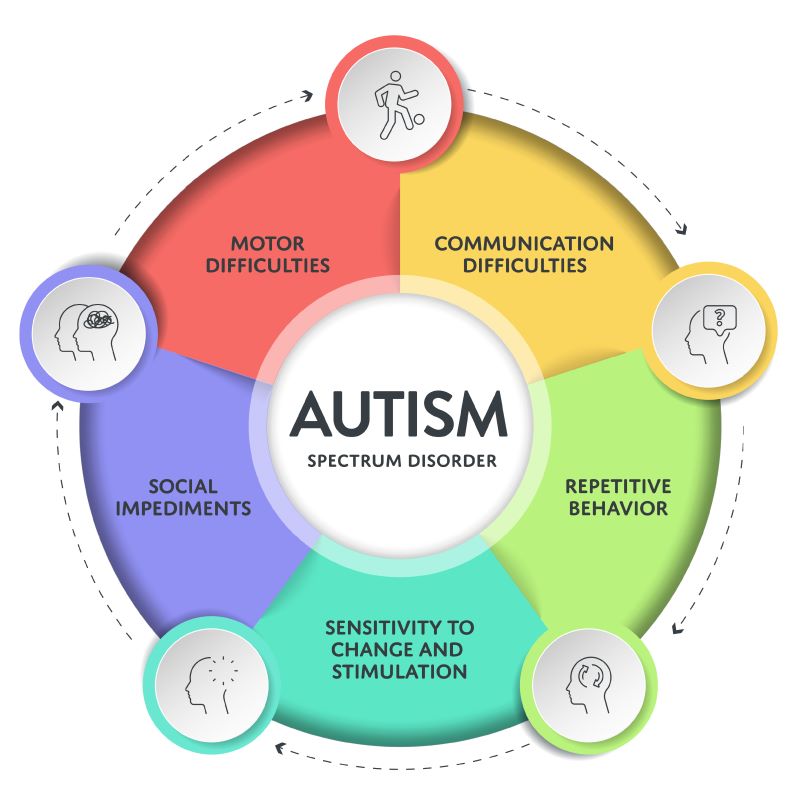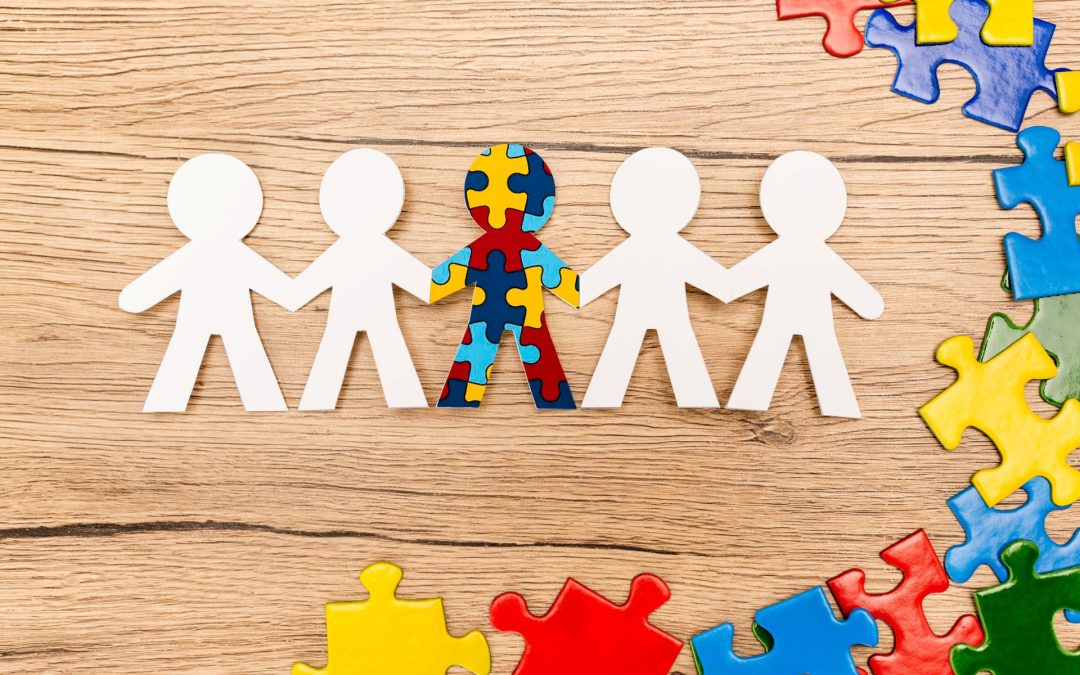What is Autism Spectrum Disorder (ASD)?
Autism Spectrum Disorder (ASD) is a complex neurodevelopmental condition characterized by challenges in social interaction, communication, and repetitive behaviors. It is classified as a spectrum disorder due to the wide variation in type and severity of symptoms. ASD is typically diagnosed in early childhood, though some individuals may receive a diagnosis later in life.
Unlike other developmental disorders, autism encompasses a broad range of conditions, from highly verbal individuals with average or above-average intelligence to those with significant cognitive impairments and nonverbal communication styles. This diversity makes personalized support and treatment crucial.
Prevalence of Autism in the U.S. and North Carolina
Autism prevalence has increased significantly over the past few decades. According to the CDC, approximately 1 in 36 children in the United States is diagnosed with ASD. The rise in prevalence may be attributed to improved awareness, screening methods, and diagnostic criteria.
In North Carolina, autism rates align closely with national averages. In the Catawba and Burke County area, schools and health clinics have reported a steady increase in autism diagnoses, prompting local providers to expand services to meet growing demand.
Recognizing Common Characteristics of Autism
The signs of autism can vary depending on age and the individual’s position on the spectrum:
- Autism in Toddlers and Preschoolers: Delayed speech, lack of eye contact, limited social interaction, and repetitive play behaviors are often early indicators of autism in toddlers.
- School-aged Children and Teens: Difficulties with peer relationships, rigid routines, and unusual interests or fixations may emerge.
- Autism in Adults: Challenges in workplace or social settings, preference for solitude, and difficulty interpreting social cues may indicate undiagnosed autism in adults.
The Spectrum: Varying Presentations of Autism

Autism manifests differently in every individual. Some common presentations include:
- High-functioning autism (formerly known as Asperger’s Syndrome): These individuals may have average or above-average intelligence and strong verbal skills but struggle with social nuances.
- Nonverbal autism: Individuals may rely on gestures, sign language, or assistive technology to communicate.
- Sensory processing differences: Many individuals with autism are hypersensitive or hyposensitive to sensory stimuli like light, sound, or touch.
How Autism Affects Families
Raising a child with autism affects every member of the family. Parents may experience emotional stress, financial strain, and the need to navigate complex support systems. Siblings may also feel the impact, often balancing admiration with feelings of frustration or confusion.
Getting support for the family is just as important as finding the right treatment for the individual. Family life often requires adjustments in daily routines, communication styles, and expectations. However, many families also report increased resilience, empathy, and a strong sense of advocacy as they support their loved one’s journey.
The Importance of Early Diagnosis and Support

Early diagnosis allows children with autism to access interventions during key developmental windows. Pediatricians and early childhood professionals often conduct screenings during regular checkups. If concerns arise, a referral for a comprehensive evaluation can lead to early support services.
Research shows that early intervention improves language, cognitive, and social skills. It also helps parents develop effective strategies for supporting their child’s growth and development.
Effective Treatment and Intervention Options
While there is no cure for autism, early and consistent intervention can significantly improve outcomes. Evidence-based treatment options include:
- Applied Behavior Analysis (ABA): A therapy that uses positive reinforcement to teach skills and reduce harmful behaviors.
- Speech and Occupational Therapy: These address communication skills, motor development, and daily living activities.
- Educational and Behavioral Interventions: Customized education plans and social skills training help individuals thrive in academic and community settings.
Community Impact and Perception
Understanding autism within the community is essential to fostering an inclusive environment. Despite increasing awareness, misconceptions persist. Some common myths include the belief that individuals with autism lack empathy or cannot form meaningful relationships—both of which are untrue.
Community support is essential to dispel stigma and build inclusive schools, workplaces, and social programs. Celebrating neurodiversity encourages everyone to value different ways of thinking and interacting with the world.
Local Autism Resources
Families in Catawba and Burke counties have access to a variety of local autism resources:
- Health Clinics: Specialized developmental pediatricians and behavioral health clinics offer diagnostic and therapeutic services.
- Support Groups: Parent-led networks and community organizations provide emotional support, education, and resource-sharing.
- Schools and Therapy Centers: Local school systems and private therapy centers offer programs tailored to children with autism.
Looking to the Future: Embracing Neurodiversity and Continued Research
Ongoing research continues to shed light on the causes, diagnosis, and treatment of autism. Advances in genetics, brain imaging, and behavioral science are contributing to more personalized and effective interventions.
Community involvement plays a pivotal role in promoting inclusion, funding research, and driving policy change. As understanding grows, so does the potential for improved quality of life for individuals with autism.
Autism is not a limitation—it is a different way of experiencing the world. By promoting understanding, acceptance, and tailored support, families and communities in Hickory can empower individuals with autism to thrive.
Together, we can create a more inclusive, informed, and compassionate society that embraces neurodiversity.

